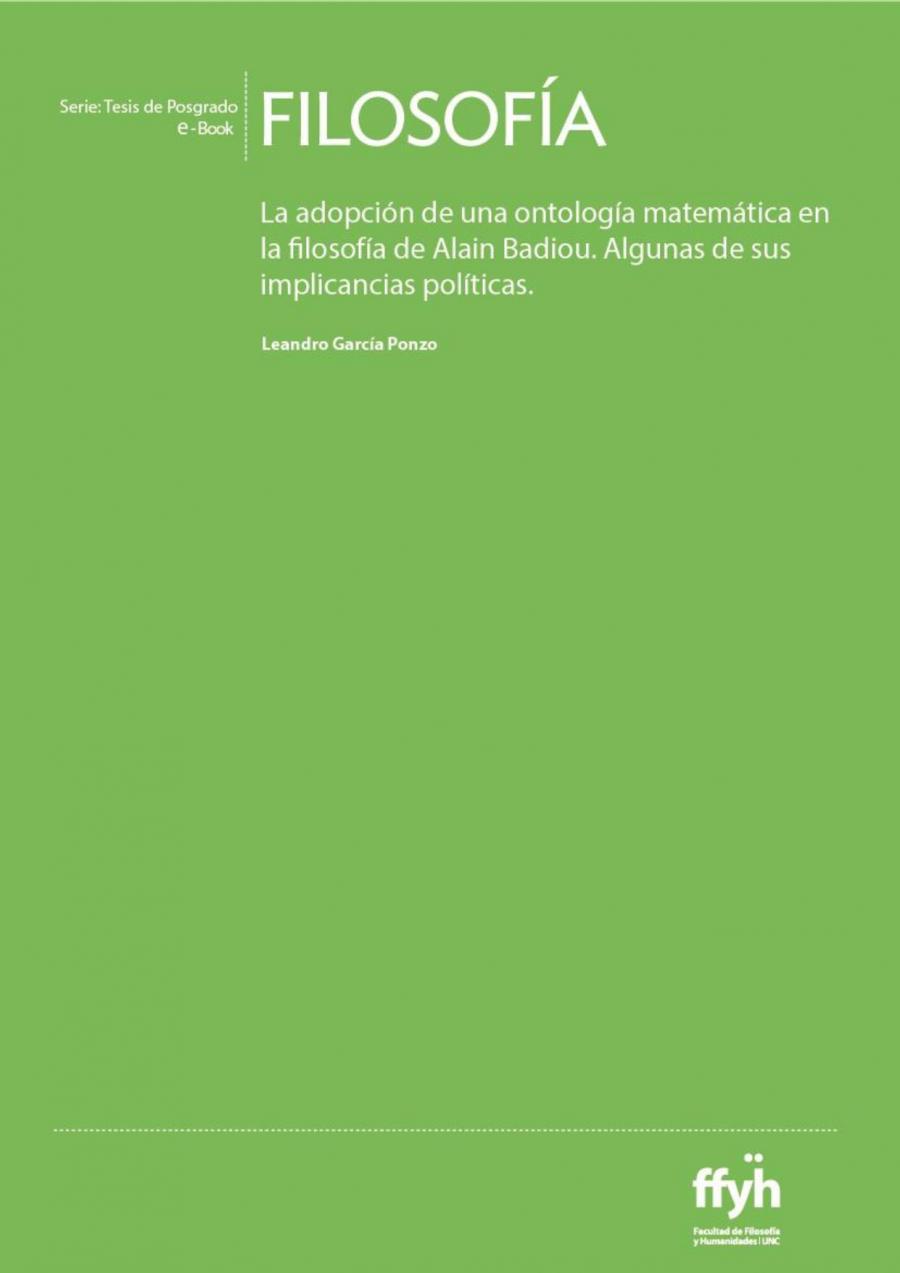The adoption of a mathematical ontology in Alain Badiou's philosophy: some of its political implications
Keywords:
Badiou; Alain 1937-, ontology (Philosophy), philosophy and mathematics, political philosophy, contemporary philosophy - France, materialist philosophy, Marxism and philosophy, Platon - influence, Heidegger, Martin 1889-1976 - influence, social emancipation - philosophical aspects, mathematics - philosophical aspects, philosophy and politicsSynopsis
This work explores the relationship between the ontology proposed by Alain Badiou and some of its indirect political consequences. It is a thesis that has been constructed. Firstly, it is based on an almost omnipresent political concern: that of the emancipation, even if only local, of the exploited and oppressed. In this sense, it has been driven by a need that is less theoretical than biographical. Added to this is a particular interest in a philosophy—and a philosopher—who has been obsessively concerned with the same issue. This interest also has an additional affiliation: a taste for Platonic philosophy, which predates even the writing of this thesis.
These three separate interests have ended up coming together, or at least that is something we hope to bring into play here. Badiou, himself a Platonist, advocates for the continuity of this libertarian philosophy in the lineage that opens up after Marx. He continues, as his teacher Althusser proposed, the exploration of that steep path that seeks to forge a materialist philosophy. To this end, he will discuss even Marx's conception of politics.
We believe that in this attempt, Badiou deploys an unprecedented strategy, in which the fundamental appeal will be to the figure of Plato. There, he will repeat a resource that has always been at the origin of systematic philosophy: the taking and use of the matheme, that is, the mathematical device as such, to grant it a specific ontological status. In this way, he will attempt to resolve other crucial issues in his quest to continue that materialist dynasty.
Thus, the hypothesis that underpins this paper is as follows: there is a fundamental operation, which can be called “good repetition” with respect to an original operation carried out by Plato, which allowed Badiou to rehabilitate philosophy and preserve a relatively effective emancipatory politics, but which today proves to be insufficient, both theoretically and practically. In turn, this insufficiency is inherent in the fundamental operation. The present investigation, then, will attempt to offer a detailed account of this transition, while also raising some questions—and perhaps answers—to the aforementioned insufficiency.

Downloads
Published
Categories
License

This work is licensed under a Creative Commons Attribution-NonCommercial-ShareAlike 4.0 International License.


